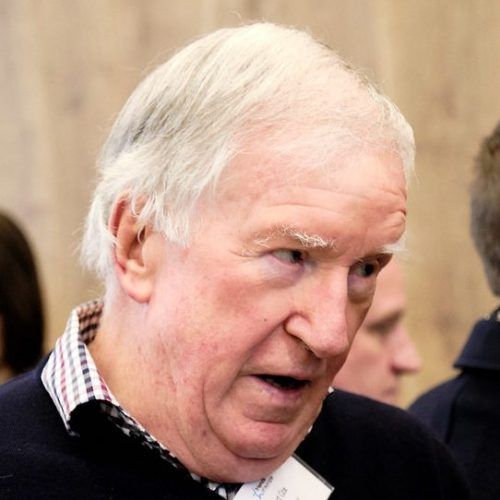Britain leaves the stage - and it can no longer expect the limelight
#CriticalThinking
Senior Advisor to the European Community Humanitarian Office (1993-1998) and former European Commission Representative to Turkey
Two friends have recently re-assured me that Britain will, in due course, end up remaining a full member of the European Union. Wishful thinking or prophecy?
After all, the referendum was not legally binding. Britain’s Parliament could ‘take back control’ and vote to Remain (a major plank of the Brexiteers’ argument was the restoration of parliamentary sovereignty). There could be a second referendum.
None of these proposals is politically feasible. And yet in politics – as in conflict resolution – ‘winner takes all’ is a bad approach. More than 48% of the electorate will effectively be disenfranchised.
This may explain why newly-appointed British Prime Minister Theresa May, keen to steer a middle course, summed up a 1 September meeting of the government with a sibylline statement that the UK would seek “controls on the numbers of people who come to Britain from Europe” but also “a positive outcome for those who wish to trade goods and services”.
These careful words may provoke confusion among the substantial number of British people who believe that their country has actually already left the European Union. They may also prompt anger among hardliners who want out now – even questioning the need for further negotiations with the ‘Europeans’.
The French and German electoral timetables will not promote generosity towards Britain
But disentanglement needs talks. The leaders of the ‘27’ will meet in Bratislava on Friday, and will start to sketch out their position in the absence of the UK. Institutional negotiating teams are in place. Europe is almost ready to hit the stage.
Britain, meanwhile, is still in the dressing room. May’s words – along with her enigmatic phrase ‘Brexit means Brexit’ – underscore the absence of any real idea about whether Britain adopts a Norwegian, Swiss or other model for relations with the EU.
Little clarity came in the first major speech by the ‘Brexit Secretary’, David Davis, on 5 September. He abused Parliament’s patience with a statement that was devoid of substance. Brexit, said Davis, “is about seizing the huge and exiting opportunities that will flow from a new place for Britain in the world. There will be new freedoms, new opportunities, new horizons for this great country”. But rhetoric is a poor substitute for policy.
Others are less vague. A group of analysts at economics think-tank Bruegel have come up with a paper entitled Europe after Brexit: a proposal for a new Continental Partnership. They seek to define what a two-speed or ‘concentric circles’ Europe could look like. The paper outlines the hypothesis of a “deeply integrated market” – in other words, you can’t have the benefits of the single market without its obligations and rules. The hard core of the EU will determine those rules, and the others will have to fall in line.
The paper suggests a likely policy for the 27. British policy – if there is one – appears to be to clarify, through informal talks, the negotiation issues before formally launching the Article 50 process. But this will not work, for several reasons.
For those countries that may become part of an EU ‘hard-core’, the road towards a two-speed Europe will become increasingly attractive
First, the French and German electoral timetables (and the political risks in Italy, Spain and the Netherlands) will not promote generosity towards Britain. The two major “continental” players face gruelling electoral contests over the coming year, leaving little spare time or energy to devote to Brexit. Only now does the inward-looking British establishment seem to be waking up to this rather obvious reality.
Second, continental leaders will be forgiven for doubting, on present performance, whether the present regime in London has much staying power.
Third, for those countries that may become part of an EU ‘hard-core’, the road towards a two-speed Europe will become increasingly attractive, despite the difficulties of implementation (especially when it comes to the eurozone). What time and energy France and Germany have for European affairs is likely to be devoted to the broader issue of where the EU goes next – a debate that will begin in Bratislava. Britain’s narrow Brexit bid will find itself cast to the margins of a wider European debate and receive appropriate attention.
Fourth, if the British wish to remain in the single market they will still face its obligations – the free movement of people; competition and state aid policy, regarded elsewhere as essential for the proper functioning of the single market; contributions to the EU budget. And they will not be allowed simply to walk away from obligations in foreign policy, security and even defence.
Divorce is always a messy business with unforeseen consequences. This one could be very messy – making some still wonder whether it will happen at all.
Stay informed
